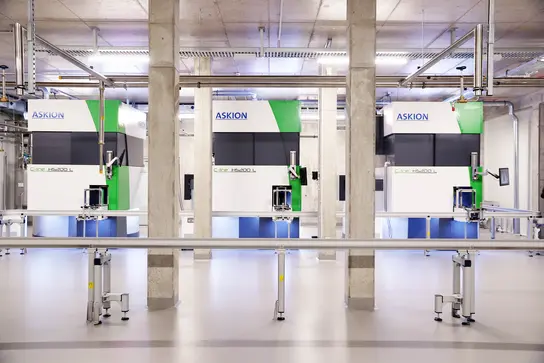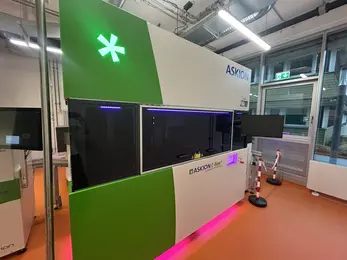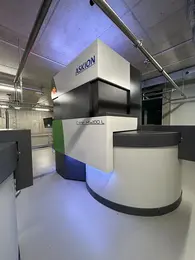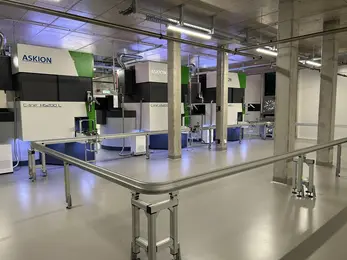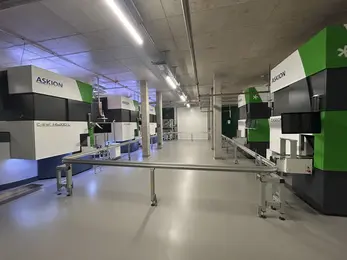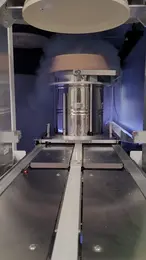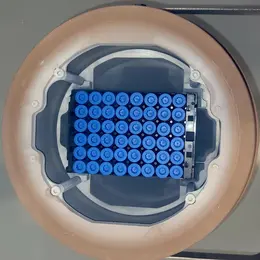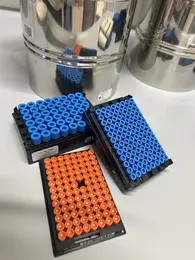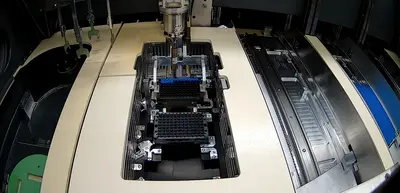Dieter Morszeck Biorepository

Dr. Simone Röhling
Head
Safe and long-term storage of biological samples is essential for cancer research. Only with samples of the highest quality, reliable new insights for the early detection of tumors and for personalized therapy can be achieved

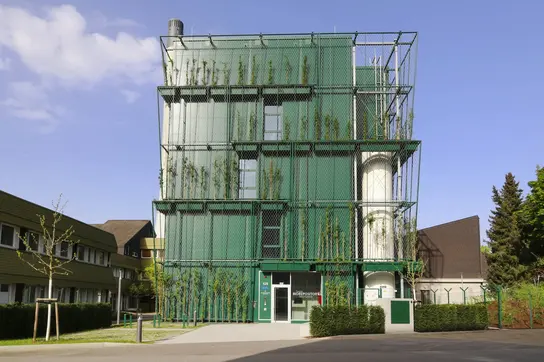
Funded by the Dieter Morszeck Foundation, the DKFZ completed the Dieter Morszeck Biorepository at the campus Im Neuenheimer Feld in 2023. The biorepository is a fully automated cold storage facility in which valuable liquid biospecimens can be stored at temperatures below -130 °C for many years. The building consists of four floors with a total area of about 1200 m². Samples are registered in the laboratory and office space on the ground floor. The upper floors are equipped with large storage tanks intended for long-term storage of samples in the vapor phase of liquid nitrogen. The tanks are connected by a rail system and allow fully automated storage and retrieval of samples as well as documentation of all working processes.
Team
-

Dr. Simone Röhling
-

Tim Machauer
-

Hanna Schreiner
-

Sandra Widder

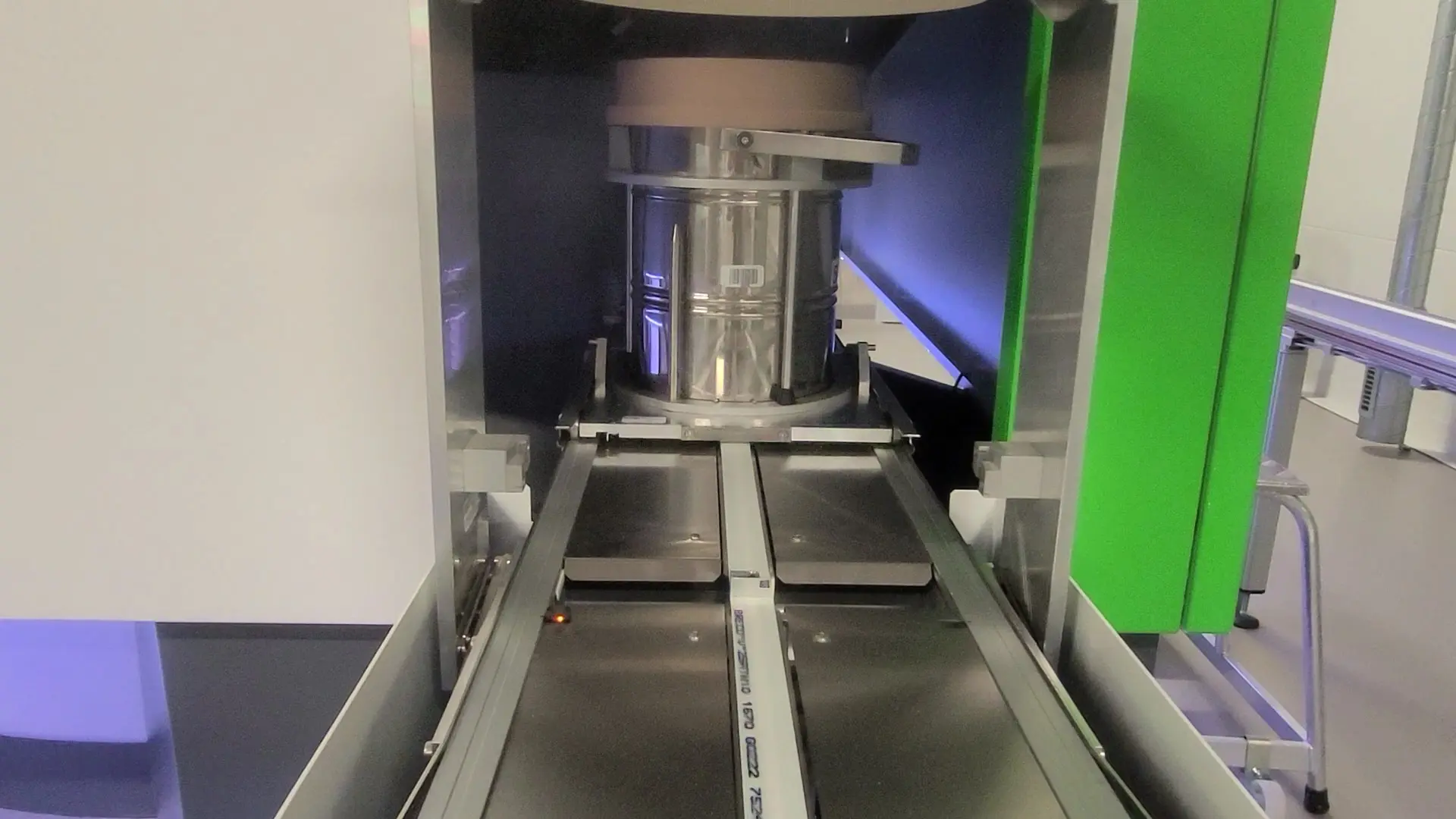
Get in touch with us

